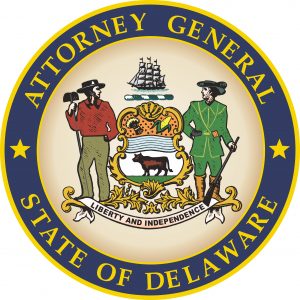Grant applications available until December 1, 2020
HURLOCK, Md. – Governor John Carney, along with Maryland Governor Larry Hogan, announced a new grant program to assist contract poultry growers impacted by the COVID-19 pandemic.
“The poultry industry on Delmarva is second to none and it’s because of the long-standing working relationships that we have across state lines, especially when it comes to supporting our family farms,” said Governor Carney. “COVID-19 has impacted all of us, but for the poultry growers who take pride in putting safe, nutritious food on your table, many of the roadblocks that COVID-19 threw at them were out of their control. This grant program is an opportunity once again for both our states to show our support for our family farms.”
“I am pleased to announce that we are immediately launching a new relief program which will provide direct payments to thousands of Maryland farmers, growers, and producers who have been hurt by COVID-19,” said Governor Hogan. “Far too often our farmers don’t get the respect or the appreciation they deserve, but I want our entire ag community to know that your commitment to our state and to our ag industry does not go unnoticed.”
Growers are paid on their performance in raising the chickens on contract for our integrated poultry companies, but the actual ownership of the birds remains with the companies. Unfortunately, due to this technicality our poultry growers are not eligible for USDA’s Coronavirus Food Assistant Program funds.
The Delaware Department of Agriculture is administering the program and will be accepting applications until December 1, 2020.
“Because of the disruption of markets, labor availability for the companies to run at full capacity in the processing plants, and other COVID-19 related impacts, Delaware growers were faced with longer than normal layout times and saw a decrease in the number of birds placed,” said Secretary of Agriculture Michael T. Scuse. “In some cases, farms were required to depopulate birds because a company did not have the ability to process the birds. All of these factors created significant reductions in grower pay and hardships for our family farms that are vital to our economy.”
The Delaware Contract Poultry Grower Grant Assistant Program will compensate contract poultry growers who:
- had an active grower contract in force on facilities located in Delaware on March 15 when COVID-19 impacted our state;
- have an approved CAFO permit or have filed a Notice of Intent for CAFO coverage; and
- do not have business interruption coverage for the losses covered by the grant program.
For poultry growers who meet these requirements, the grant program will compensate:
- $1,000 per poultry house, up to a maximum payment of $5,000 per farm.
- In addition, any grower that meets the above criteria, and had to depopulate birds remaining in-house for composting related to COVID-19 will receive another $1,500 per poultry house depopulated without cap.
Applications for the Delaware Contract Poultry Grower Grant Assistant Program are available online at agriculture.delaware.gov/grants-loans and will be accepted by the Delaware Department of Agriculture until December 1. Applicants must complete a W-9 form online (esupplier.erp.delaware.gov) prior to receiving payment.
###
